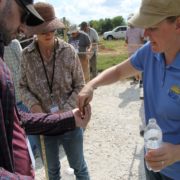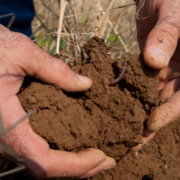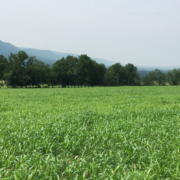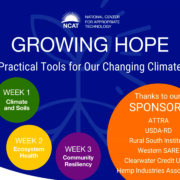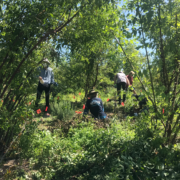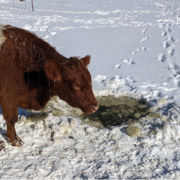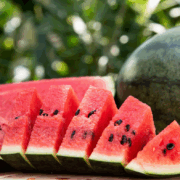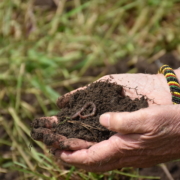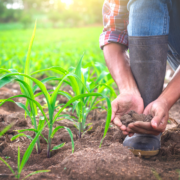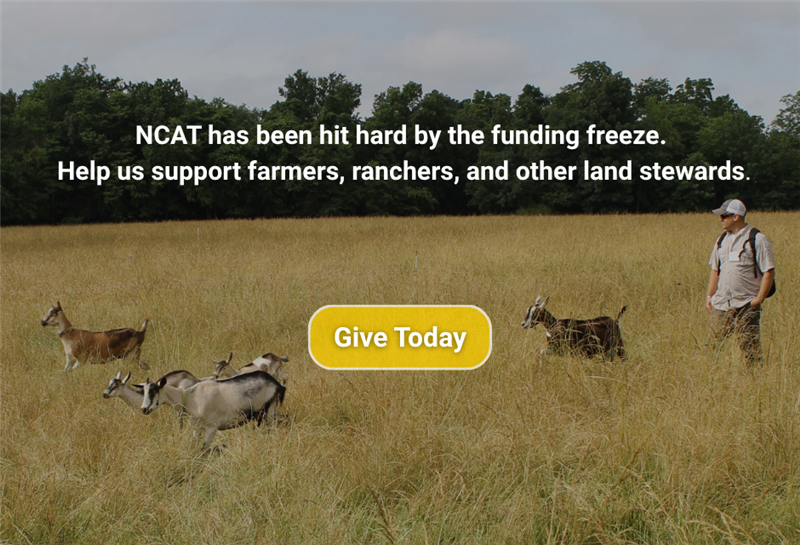Reflections on NCAT’s First Soil Health Innovations Conference
 Print This Post
Print This Post
By Nina Prater, NCAT Sustainable Agriculture Specialist
Everyone has their “thing”—that topic or interest that they just can’t get enough of. That topic that you bore people with at parties (remember parties?) when you talk about it just a little too long. My “thing” is soil. I find the topic so endlessly fascinating, and I get to think about, talk about, teach about, and play with soil as a job and a way of life. I’m lucky enough to be a soil specialist for NCAT and I live on a family farm.
So, when I found out that NCAT was going to be holding a two-day conference on Soil Health Innovations, I was like a kid in a candy store. All things soil-related, for two days! Two days spent with other soil people! When I was asked to help guide the conference programming, I was like a kid put in charge of the candy store. I mean, I wasn’t given full reign over the conference or anything. It was a delight to join the conference steering committee, a knowledgeable team of folks from NCAT, Western SARE, USDA, and Montana State University (MSU) to shape the conference over the course of a year.
We had everything all planned, organized, and set to go for March 30 and 31, 2020, at the MSU campus in Bozeman. But, as you can probably already surmise, it had to be postponed. Due to the uncertainty of how the pandemic would play out, we chose to transform the conference into a virtual event on March 8 and 9, 2021. And even though we weren’t able to meet in person, I’m happy to report that the conference was an exciting and inspiring look at soil health.
 We heard from farmers all over the country who are holding soil health at the heart of their operations in different ways: Russ Lester of Dixon Ridge Farm in California told us about his organic walnut production and how cover crops between his rows of trees have significantly improved water infiltration. Dave Scott of Montana Highland Lamb shared his soil health journey using regenerative grazing on irrigated pasture. Then we dipped south and listened to Allison Guidroz, who described how she builds soil health on her vegetable operation, Fullness Farm, in Baton Rouge, Louisiana. She was able to quantify her efforts while pursuing her M.S. in Soil Science. Adam Chappell, who raises cotton, rice, corn, and soy, shared how he and his brother Seth won the battle against pigweed (a.k.a. Palmer amaranth) using a combination of no-till and cover crops in Cotton Plant, Arkansas. In doing so, they saved their farm financially while witnessing amazing improvements in their soils. Rick Clark shared how he has gone from conventional grain production in Indiana to using no-till, cover-cropping, and certified organic production on almost 8,000 acres. Their excitement for soil health flowed through the Zoom screen and participants filled the chat box with questions and kudos!
We heard from farmers all over the country who are holding soil health at the heart of their operations in different ways: Russ Lester of Dixon Ridge Farm in California told us about his organic walnut production and how cover crops between his rows of trees have significantly improved water infiltration. Dave Scott of Montana Highland Lamb shared his soil health journey using regenerative grazing on irrigated pasture. Then we dipped south and listened to Allison Guidroz, who described how she builds soil health on her vegetable operation, Fullness Farm, in Baton Rouge, Louisiana. She was able to quantify her efforts while pursuing her M.S. in Soil Science. Adam Chappell, who raises cotton, rice, corn, and soy, shared how he and his brother Seth won the battle against pigweed (a.k.a. Palmer amaranth) using a combination of no-till and cover crops in Cotton Plant, Arkansas. In doing so, they saved their farm financially while witnessing amazing improvements in their soils. Rick Clark shared how he has gone from conventional grain production in Indiana to using no-till, cover-cropping, and certified organic production on almost 8,000 acres. Their excitement for soil health flowed through the Zoom screen and participants filled the chat box with questions and kudos!
Farmers’ enthusiasm for soil health is catching on. Bianca Moebius-Clune, Soil Health Division Director of USDA’s Natural Resources Conservation Service, said she has never seen her NRCS field staff so excited about something as they are about soil health. Researchers are starting to embrace a more systems-based approach at studying soil health, rather than a reductionist approach, as Director of Chico Center for Regenerative Agriculture Dr. Cindy Daley described in her talk, The Evolution of Regenerative Science. We heard from a lot of those researchers throughout the conference. We also were so excited to speak with two U.S. Senators who understand the importance of soil health to all farmers and are working to ensure federal policies support farmers in their soil building efforts: Senator John Boozman of Arkansas, and Senator Jon Tester of Montana.
With two days packed with speakers, I can’t possibly list all of the amazing presentations that flowed one after the other. It was an amazing experience to look at soil health from every perspective—policy, human health, indigenous and traditional practices, practices for the market farmer, regenerative grazing, and so much more. It became clear that there is a movement of people rallying behind the effort to rebuild soil health around the country. It was exciting to thoroughly geek out and swim for two days in a vast ocean of soil wisdom. Throughout the conference, people shared the latest science, the stories, and hopes for the future.
This conference may be over, but for the next six months, anyone who registered will have exclusive access to the recorded sessions. After that, the recordings of conference sessions will be available to anyone through the ATTRA website, attra.ncat.org. Even if you’re not as big a soil geek as me, these sessions will give you practical knowledge and inspiration to make your farm sustainable from the soil up.
For more information on soil health, you can contact Nina directly at ninap@ncat.org.
To access a variety of resources on soil health, visit the Soil and Compost section of the ATTRA website.
ATTRA Podcast Episodes Featuring Conference Speakers
A Talk with Fred Provenza: Episode 131 – Part 1 & Episode 132 – Part 2
Episode 77: Soil Health and Johnson-Su Composting with Buz Kloot
Direct Marketing Meat Series with Dave Scott: Episode 128 – Part 1; Episode 129 – Part 2; Episode
136 – Part 3; Episode 137 – Part 4
Episode 154: Using Cover Crops in an Organic Walnut Orchard with Russ Lester, Dixon Ridge Farm

